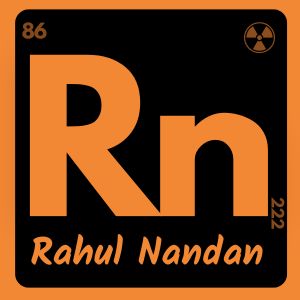🗓️ Exam Date: 22nd February 2024 (Thursday)
Dear Students,
With the Class 12th English examination behind you, it's time to shift your focus to the next challenge: Chemistry. As you prepare to tackle this subject with finesse, here's a strategic guide to ensure you excel in your upcoming paper.
📚 Important Chapters of Chemistry for Class 12th Board
- Physical Chemistry: Electrochemistry, Solutions, Chemical Kinetics
- Organic Chemistry: Halides, Alcohols, Phenols and Ethers, Aldehydes, Ketones and Carboxylic Acids, Amines
- Inorganic Chemistry: Coordination Compounds, p-Block Elements, d- and f-Block Elements
🔍 Revision of Compiled Formulas and Practice of Problems
Consolidate your understanding by revisiting formulas and practicing a variety of problems. This reinforces concepts and boosts problem-solving skills, crucial for tackling the exam confidently.
📖 How to Take the Best from the NCERT Book
Utilize the NCERT book as your primary resource. Pay close attention to explanations, examples, and exercises. Understand concepts thoroughly, as questions in the board exam are often directly drawn from the NCERT syllabus.
📊 Last 5 Year Chapterwise Marks Weightage for CBSE Class 12 Board Exam
- Physical Chemistry: 30%
- Organic Chemistry: 45%
- Inorganic Chemistry: 25%
Formula Frenzy
- Formulas are your weapons, wield them well! ⚔️ Revise religiously from NCERT Exemplar and reliable sources.
- Practice diverse problems to build speed and accuracy. Don't shy away from challenging yourself!
📖 Practice the Last 10 Year Papers for Self-Evaluation
Familiarize yourself with the exam pattern and assess your preparation level by solving previous years' question papers. Identify weak areas and focus on improving them. Utilize mock tests to simulate the exam environment and practice time management. ⏳Remember Past papers hold the secrets, unlock them! Analyze the last 10 years' papers for patterns and marking schemes.
📝 Improve the Presentation
Ensure neat and organized presentation of answers. Use headings, subheadings, and bullet points to enhance clarity and readability.
- Neatness and Organization: Ensure that your handwriting is clear and legible. Write each answer neatly and avoid overcrowding the page. Organize your answers logically, with each point or idea presented in a structured manner.
- Headings and Subheadings: Use headings and subheadings to break down your answers into distinct sections. This not only makes your answers easier to read but also helps you stay organized and ensures that you cover all relevant points.
- Bullet Points and Lists: Instead of writing long paragraphs, consider using bullet points or numbered lists to highlight key points or arguments. This makes it easier for the examiner to identify and assess the main ideas in your answer.
- Clarity and Readability: Focus on clarity and conciseness in your writing. Avoid using overly complex language or unnecessary jargon. Aim to express your ideas in a clear and straightforward manner that is easy for the examiner to understand.
- Use of Diagrams and Illustrations: Where applicable, consider incorporating diagrams, graphs, or other visual aids to support your answers. Visual representations can often convey information more effectively than words alone, especially for complex concepts or processes.
Overall, the goal of improving your presentation is to make your answers more accessible and understandable to the examiner. By prioritizing neatness, organization, and clarity, you can ensure that your answers stand out and effectively demonstrate your knowledge and understanding of the subject matter.
📝 Tips for the Exam Day
- Start with the section you're most comfortable with to build confidence.
- Manage your time effectively; allocate appropriate time for each section.
- Read questions carefully and underline key terms to ensure accurate responses.
- Double-check your answers for accuracy and clarity before submission.
Gear up, stay focused, and ace your Chemistry exam with confidence and determination!


 Launch your Graphy
Launch your Graphy